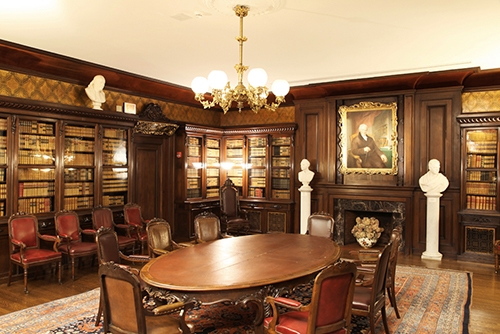MHS Mid-Year Fellows Meeting

MHS Event
Proposed bylaws changes will be discussed and voted on.
All elected fellows are encouraged to attend. The meeting will be held online and in-person so that more people can participate in the discussion. However, please note, that only those participating in-person will be able to vote.
Hybrid Event
MHS maintains a high standard of Covid protection. All visitors to the MHS must:
o Provide proof (physical card or digital image with person’s name) of optimal protection against Covid-19, currently meaning BOTH an FDA authorized COVID-19 vaccine AND “BOOSTER.”
o Wear a well-fitted mask covering the nose and mouth for the duration of their visit to the MHS. Please note that food and drink will not be not offered at this meeting nor allowed in the meeting space.
o Stay home if they are at all ill, have been in contact with anyone who is at all ill, or are quarantined due to exposure to COVID-19.
